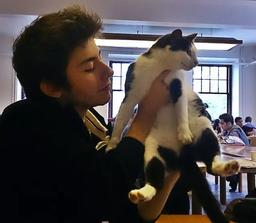Next up we have the evidential copula -(y)mİş. Like the past copula, it is also used to turn nouns into predicates. Example:
| (Apparently) That car was new. | O araba yeniymiş. |
What makes the evidential copula tricky is this: it can convey the meaning of past, or it can convey the meaning of heard-aboutness without being in the past. Take a look at these examples:
| Evidential copula combined with | Turkish | English |
|---|---|---|
| Continuous | öl-üyor-muş-uz | (Apparently) We were dying. |
| Future | Film az sonra bit-ecek-miş.1 | (Apparently) The movie is going to end in a bit. |
| Obligation and Necessity | Küçük kardeşim ödevini yap-malı-ymış. | (Apparently) My little sibling should have done his/her homework. |
| Conditional | Görevinizi yap-sa-ymış-sınız | (Apparently) If you had done your duty |
| Aorist | Her sabah süt iç-er-miş-im.2 | (Apparently) Every morning I drank milk. |
2Here the -mİş conveys a past habit and that the speaker heard this from other sources, that he doesn't remember this first-hand.
Evidential copula does not combine with regular past tense. That is to say forms like -Dİymİş, yaptıymış does not exist.
However evidential copula combines with evidential past tense, and it gives a unique meaning:
| Evidential copula combined with | Turkish | English |
|---|---|---|
| Evidential Past | Gülmüş-müş-üm. | (Allegedly, supposedly) I laughed (but I believe I didn't.). |
Evidential copula can be combined with conditional copula, which you will see in part 3 of the copula series.
